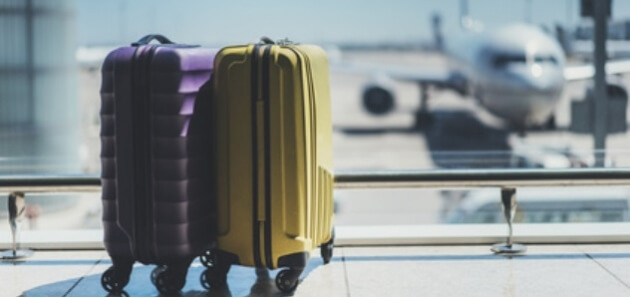
Now that complimentary airline meals have all but become a thing of the past, you may be wondering if you can take your own food through airport security. The quick answer is yes. In fact, the Transportation Security Administration will allow you to bring practically any food through airport security in your carry-on bag.
The issue is how much of any particular food you can take through the security checkpoint. To figure that out, you’ll need to think about your carry-on food in terms of the following three categories.
The Transportation Security Administration’s “3-1-1 liquids rule” requires that all liquids and gels in your carry-on luggage be stored in 3.4-ounce (100 ml) or smaller containers — all of which must fit into one quart-sized plastic bag.
What type of food does the TSA consider a liquid? Some items, like milk, juice and water, are obvious candidates for the liquids rule. But foods with a creamy or gel-like consistency also fall under the restriction.
Some common foods and beverages that fall under the TSA liquids rule for the purposes of taking food through airport security, and are therefore restricted to being packed in 3.4-ounce or smaller containers, include:
Jam and jelly
Creamy and spreadable cheeses, such as Brie, Camembert, cream cheese and cottage cheese
It’s worth noting that the TSA will typically allow a sandwich containing items that would otherwise be considered liquids — such as peanut butter, jam, jelly, mayonnaise, egg salad, mustard, cream cheese and hummus — to pass through airport security, as long as the sandwich is not overly soggy. But if you want to take along a separate container of these items, it will have to be 3.4 ounces or less.
*An exception to the liquids rule is for passengers who are travelling with an infant or a toddler (defined by the TSA as a child who receives assistance in walking by an adult). In that case, you can bring certain liquids, such as juice, milk and liquid baby foods, through airport security in quantities greater than 3.4 ounces.
For TSA screening purposes, certain foods are considered to be “powder-like substances.” And while not an absolute requirement, it’s best to limit the quantity of these foods that you pack in your carry-on to containers of 12 ounces (350 ml) or less. Powders in quantities above 12 ounces (about the size of a standard soda can) may be disallowed through the security checkpoint if TSA agents cannot be assured of their safety.
Foods that fall under the TSA’s powder screening regulations include:
Powdered Drink Mixes and Protein Powder
If your food doesn’t fall into either of the above categories, then it’s pretty much good to go through airport security in any quantity. One exception: If you are flying from Hawaii, Puerto Rico, or the U.S. Virgin Islands to the U.S. mainland, you cannot take most fresh fruits and vegetables on board. If you are flying to Hawaii, you must declare all fresh fruits and vegetables you bring upon arrival; these may be inspected and prohibited depending on type and origin.
Other than that, the TSA places no quantity restriction on solid foods — you can take whatever amount of solid food as you’d like through airport security, provided it fits in your allowable carry-on baggage. Both homemade and store-bought solid foods are fine to pass through the TSA checkpoint. Whole, fresh fruits and unopened, pre-packaged foods like potato chips don’t require any additional wrapping. Foods that aren’t already pre-packaged should be wrapped or placed in a resealable bag or container with a secure-fitting lid.
Common foods that you can take through airport security in any quantity (provided they fit in your allowable carry-on luggage) include:
Solid Cheeses- such as Cheddar, Swiss, Gouda (including cheese slices and string cheese)
Cooked or Raw Turkey and other cooked and raw meats, poultry and fish
Note: While the above information is based on applicable Transportation Security Administration (TSA) guidelines at the time of publication, the final decision for whether to allow a food item through airport security rests with the TSA officers on duty at the airport screening location. While uncommon, TSA officers may prohibit an otherwise allowable food item if they feel it has been tampered with or presents another security concern.